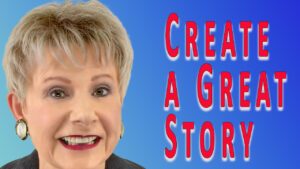Have you often noticed how the most profound lessons usually come from the most straightforward everyday experiences?

You might hear a funny or profound speaker seemingly talking about mundane situations, and you think, “Nothing like that ever happens to me.” Of course, it does, or you wouldn’t relate to it. That speaker has attributes meaning where it doesn’t usually occur, turning ordinary moments into powerful lessons.
For example, in a speech on good customer service, my client said, “Patricia, our associates don’t stay in Ritz Carlton; they don’t shop at Nordstrom. How do we teach them what good service is?”
I responded, “Very easy. We are all customers. You need them to act as business consultants based on their experiences and then apply what they learn to their company.” I shared some of my good and bad customer service stories and asked them, “Who would like to tell me one of yours?”
A young woman raised her hand and said, “I went into a store to buy a leotard to go under my child’s Halloween costume. I made a mistake and took the wrong size. I hadn’t opened the package, so I returned it and said, ‘Excuse me, could I change this for another size?’ The clerk rolled his eyes and said, ‘You don’t even know what size your kid is?’”
She continued, “I made another purchase, wrote a check, and accidentally put the next day’s date on it. The clerk threw the pen across the table and said, ‘Will you initial that?’ I went up to the Customer Service Department and told them the story.
Do you know what they said? ‘That must be Antony.’”
At the first management seminar I attended as a new business owner, the speaker said, “Your business is as good as your worst employee.”
If they know about Antony and he is still there, what does that reveal about the company’s culture?
The point I made in the speech is that this company advertises, “We care about our customers,” yet they know about Antony. Here is the most critical lesson in management: It’s not what you say you believe that’s important. It is what you model, encourage, reward, and let happen.
The accurate measure is in what you allow, tolerate, and reward. That’s where your true values are revealed.
Here are some ideas and questions that will help you with your next presentation or team meeting, where you can use stories that make a point and can relate to almost everyone.
Start with stories you are already telling.
This week, what incident or situation compelled you to talk about it at work or the dinner table?
What story makes your friends and coworkers laugh when you relate it?
Observe your average day. What is an average day for you? Start paying attention to what happens as you go through it. Ask yourself, “If I used this example in a speech or team meeting, what point would I emphasize?”
Remember, you don’t need to be a comedian or a philosopher to captivate your audience.
The best stories reflect real life, with all its quirks and challenges. There are great lessons in everyday life, and they’re yours to share.
When your message must be memorable, your presentation powerful, and your sales successful, I can help.
Need help for you or your team on improving important conversations and presentations? The Fripp Customized Approach will work for you. Contact Fripp today!

